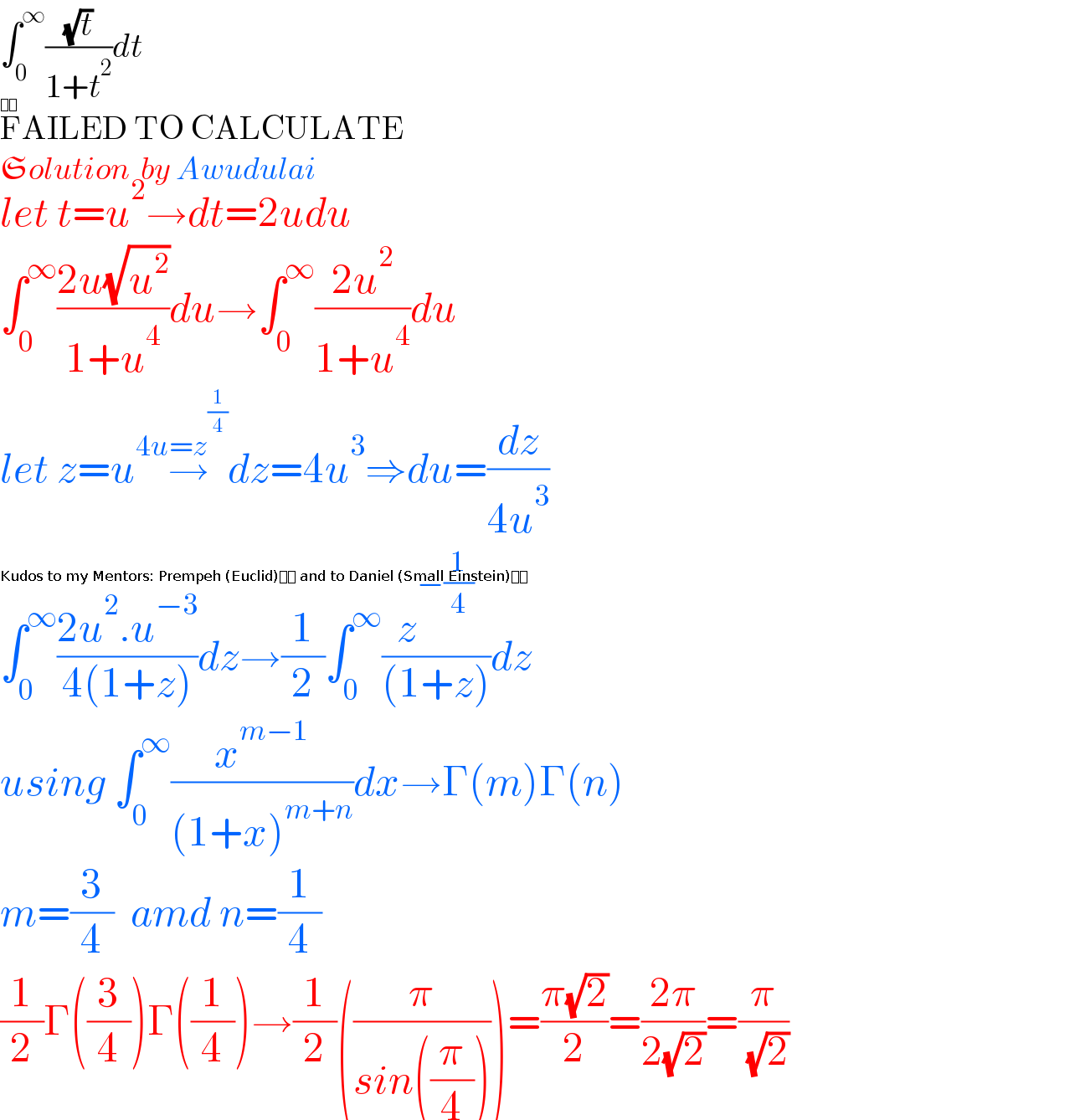
Question and Answers Forum
Question Number 168743 by mehdiAz last updated on 16/Apr/22

Commented by GalaxyBills last updated on 17/Apr/22

Answered by Mathspace last updated on 17/Apr/22

| ||
Question and Answers Forum | ||
Question Number 168743 by mehdiAz last updated on 16/Apr/22 | ||
 | ||
Commented by GalaxyBills last updated on 17/Apr/22 | ||
 | ||
Answered by Mathspace last updated on 17/Apr/22 | ||
 | ||
| ||